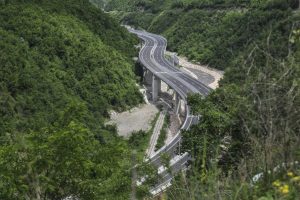As a new administration is set to take over the Kosovo Government in a matter of weeks, those hopeful that the economic malpractice that has plagued previous administrations will be dismantled offer a few steps to push the new government in the right direction.
Over the past 10 years, Kosovo has enjoyed economic growth averaging at four per cent annually. That growth, which is generated primarily through the consumption of goods financed by remittances from Kosovo’s diaspora and public investments in roads and highways, has not translated into the creation of a better standard of life, or an increase in the numbers of new jobs necessary to accommodate people entering the job market every year.
If we look at data from the Kosovo Statistics Agency, during recent years the unemployment rate has stood at around 30 per cent, while the number of those employed did not increase. These two figures are startling, but the worst is yet to come.
Many citizens of working age (around 700,000 in total in Kosovo) are not considered unemployed despite not having a job, and this is even more worrisome. There are 160,000 people who are not deemed unemployed by the Kosovo Statistics Agency, purely because they do not actively apply for jobs or have already given up on their search.
One statistic that the new government must take into account when setting its priorities is the roughly 100,000 young people under the age of 24 who are not studying at university or going to school and are unemployed. This group pose a potential risk for a rise in crime, alongside potentially adding to Kosovo’s emigration figures. In the last five years, 170,000 Kosovars – roughly 10 per cent of the total population of Kosovo – have left Kosovo seeking a better life elsewhere.
These statistics must change. This can only happen by increasing the number of employed people significantly and decreasing the number of individuals deemed inactive in the labor market.
These numbers will be changed only by strengthening the private sector, by increasing foreign direct investments, increasing production, reducing the trade deficit and investing in education in such a manner that Kosovo prepares a workforce that the labor market truly needs.
These unemployment statistics, which are the ultimate indicator of economic growth or stagnation, will not change for the better if governments continue to extort public funds by appointing 80 deputy ministers, by treating public enterprises as employment opportunities in exchange for votes, or through continued excessive investments in highway and road construction while other sectors such as health and education remain desperately underfunded.
There is a variety of steps that the Kosovo Government must take in key areas where misuse of public funds, corruption and nepotism are rampant. Once these are tackled, the quality of life of people living in this country may begin to increase alongside its GDP.
Investments in asphalt
Since 2008’s declaration of independence, when power was transferred from the United Nations Mission in Kosovo, UNMIK, to Kosovo institutions, Kosovo’s governments have had one priority: investing in asphalt.
Based on expenses incurred by Kosovo institutions from building the country’s highways, as well as regional and local roads, and the cost of expropriating private land to build them, the government has spent more than 2.5 billion euros on roads.

A view of the motorway ‘Arben Xhaferi’ near the town of Kacanik before being inaugurated on May 2019. Photo: BIRN.
This investment is not entirely pointless, as it was necessary for the state of the roads to improve. However, investments in asphalt became redundant, and the tipping point from necessary investment to excessive public spending came in 2014 when the minister of infrastructure during Hashim Thaci’s tenure as prime minister decided to sign a contract with the Turkish-American consortium Bechtel Enka worth 600 million euros.
Construction of the highway that connects Kosovo with North Macedonia should not have been a priority at that time, as the state of the healthcare and energy sectors, among others, were poor. These two sectors in particular saw Kosovo wasting a lot of money, both on importing electricity and from its citizens seeking healthcare services abroad.
Investing in healthcare and energy would have brought a much bigger return (value for money) than investments made in highways. We have seen how committed the outgoing government is to building a new highway in Dukagjini that is utterly needless, and is expected to cost around one billion euros.
When it comes to infrastructure, the new government should hold back and significantly decrease investments in asphalt. This means that the new Kosovo government must invest in maintaining the current roads so they do not become more damaged, as a World Bank report recommended a few years ago.
It should also be seriously considered whether Kosovo should introduce tolls on the highways, as it is unfair to maintain these roads with the money of Kosovo taxpayers, while they are overloaded by transportation trucks coming from Serbia or other countries that use Kosovo roads in transit.
Reforms to the energy sector
The Kosova e Re coal-fired power plant project will be the first challenge to tackle for any new government. Passing decisions on this project requires a special majority, or two thirds of the votes of members of the Kosovo Assembly, and this would be needed to issue a state guarantee to secure loans to finance the plant’s construction.
Some of the negative impacts of this project both financially and in relation to the energy market have been published by BIRN. Since 2010, the Kosovo Civil Society Consortium for Sustainable Development, KOSID, has published dozens of reports presenting the environmental, health, water and agricultural impacts of the project.
Even if we ignore the environmental impact of the project, the manner in which the contract and the financial terms of this project were negotiated and finalized – which left everyone in the dark – is enough to warrant its discontinuation.
Furthermore, KOSID and Berkley University in California have delivered a plan on how to develop Kosovo’s renewable energy potential, which offers several wide-ranging options.
With the development of technology in energy production through renewable resources, the costs have reduced so much that it has become more cost efficient not to build a new coal power plant and invest in renewable energy instead. This was the conclusion of the 2018 World Bank study which saw the organization withdrawing its support for the construction of the Kosova e Re coal power plant in October last year.
Hence, Kosovo had, and continues to have, better options, and the coal power plant is not the only solution. Ending it would mean that Kosovo would have to pay 19 million euros, which is a marginal expense compared to the negative impact and costs incurred by the project over the next 20 years were it to be executed.
The Kosova e Re power plant is not the beginning and end of Kosovo’s problems with coal. There are two other priorities in this sector. Firstly, the Kosova A coal power plant must be shut down. Secondly, the modernization of Kosova B must be carried out and procedures to do so must start as soon as possible.
Both these options are impossible to avoid. If any government chooses to keep Kosova A operational this decision would have monumental consequences, risks and unknowns which may cost millions of euros and cause even more damage to our environment and health. Each future government must prioritize investment in the production of renewable energy.
Up to now, many scandals in the energy sector have been revealed, due to a total lack of procedural coordination between the Energy Regulatory Office and the Ministry of Environment, especially regarding the construction of small hydropower plant projects. Protests have been held in numerous towns and villages across Kosovo demanding an end to the construction of hydropower plants in their region because of the visible lack of water in the rivers on which the plants will be built.
There are businesses who have already made investments in this sector, but who still lack permits to become operational. This must not happen. Each project should be transparent and real socio-environmental assessments must take place, while communication and consent of local residents should also be obtained in order for projects that pass preliminary approvals to become operational and be implemented.
Fighting the capture of public enterprises
The government that emerges from the October 6 elections should dismiss any board members that were appointed in violation of the Law on Public Enterprises, or through nepotism and party allegiance, as one of its first tasks.
The outgoing Kosovo Government selected the boards of 14 public enterprises by publishing open vacancies for the positions. Recruitment procedures were not transparent, however, and on numerous occasions, neither BIRN nor the British Embassy – who signed an agreement to monitor all recruitment procedures – were present during these meetings.
It is essential to be able to monitor the performance of each board and the management of public enterprises. During the analysis of past performance of public enterprises, several audit reports that have been published contain outrageous findings that would justify the dismissal of persons involved.
It would be wrong to fill the boards with members of political parties yet again without undertaking a fair recruitment process in the name of fighting capture. Recruitment processes for new public enterprises and the boards of independent agencies must be open and transparent. When filling these vacancies, exclusionary employment requirements and demands for many years of work experience should also be removed, in order to enable qualified younger people the opportunity to become part of the boards as well.
One of the British Embassy’s strongest complaints about recruitment processes in Kosovo has been the failure of authorities to employ the candidate that is most qualified for the position.
It would be ideal for interviews with candidates for boards to be filmed as proof of whether they truly deserve the position. A university in Finland not only films interviews with the candidates, but also publishes them in order to be as transparent as possible about the performance of the hired candidates. Such transparency is a demanding solution, and difficult to achieve in our society, but it would at least contribute to enterprises being held publicly accountable for poor or corrupt recruitment processes.
Choosing board members based on merit and not on political alliances means that we will have competent people at the top management levels of public enterprises. As such, responsibility for such recruitment, which currently lies in the hands of the prime minister’s office, should be moved and full competence given to the Ministry of Economic Development.
Public enterprises that fail to perform efficiently and to their full potential drain public resources through their reliance on state aid and government-approved subsidies. Those enterprises with the potential to run at a profit without this assistance should have this additional funding removed. Only then may investment in the modernization of their assets and improvement of their services be carried out.
‘Tendermania:’ the disease and the cure
Unfortunately, domestic companies are often subject to discrimination by state institutions, particularly in the tendering processes for public contracts. A well-known example would be the tender to purchase Plasma biscuits, while an almost identical product by local producer ‘Liri’ was left to the side.
However, the disease in procurement goes far beyond the Plasma tender, and seems difficult to cure. ‘Tendermania’ has been mentioned often since the declaration of independence. Tenders, being the only means for Kosovo institutions to spend public funds, have endured a long history of abuse for private gain.
During 2018, procurement procedures or tenders that cost the government 631 million euros were concluded for central and local institutions as well as public enterprises.
According to BIRN’s annual reports, which publish the results of direct monitoring of the public procurement process, the manipulation of tenders has evolved, becoming more and more sophisticated. Those abusing the system have managed to find loopholes to evade, violate or circumvent the law in order to profit from these contracts.
The public procurement process has been the subject of numerous reforms in recent years. Transparency and the efficiency of the process has been improved through various amendments to the public procurement legal framework and the move towards a paperless electronic procurement system which was finalized last year.
In the past, the Law on Public Procurement stipulated that a tender could be processed only if there were three responsible offers made by three bidders to win the contract. Nowadays, only one responsible offer is enough for a contract to be signed, a change that was made following almost no consultations.
The law was changed because in some cases, specific institutions eliminated up to ten irresponsible offers, while they awarded the tender to the only remaining responsible offer. This was a recurring situation for some tenders issued for the construction of roads and in healthcare.
The first change that must occur is to bring back the legal restriction that states “tenders may be processed only when there are two responsible offers.” Of course, legal means should be foreseen to allow a tender to proceed even if it lacks two responsible offers, but only when formal approval by the Public Procurement Regulatory Commission, PPRC, is obtained together with reasonable justification.
The Procurement Review Body, PRB, has become the black sheep of the procurement sector. Since it became functional, the PRB has operated with only three board members, rather than the five foreseen by the Law on Public Procurement. Despite the board being considered functional and able to take decisions even with only three members, this still constitutes a violation of a very meaningful article of the law.
The Law on Public Procurement requires all members of the Review Body to be present when taking decisions on tenders with a high value, those exceeding the amount of 250,000 euros. The PRB has violated this law on a regular basis, with extremely important tenders being reviewed by panels composed of only three members.
The second solution, then, is to amend the Law on Public Procurement, specifically the section which addresses the PRB, and increase the number of mandatory board members. While seven could be deemed sufficient, the ideal number of PRB board members would be 10.
However, this proposal has a negative consequence, namely increasing the costs of salaries and operational expenses for 10 board members. Nevertheless, the fact that public funds have paid for 80 deputy ministers and many coordinators in the past makes this dilemma somewhat irrelevant.
The benefit is clear, however: the return from paying these salaries would be huge, guaranteed through decisions of the PRB that would safeguard public funds and push forward viable and profitable projects.
It is necessary to set a clear methodology for selecting the panels from these 10 members to review a complaint. The PRB should use rotation or lottery as techniques to assign members to the review panels, thus making it impossible for the members to choose the tenders they want to decide on. This could decrease any possible influence on the members of the board.
When we talk about procurement, the government must also undertake reforms in regards to the PPRC. The number of staff as well as their professionalism must increase when issuing legal interpretations of decisions on tenders that have been issued.
All decisions must be made public in order to avoid cases of issuing differing interpretations of the same legal dispute. In addition, the amount of direct monitoring of contract implementation conducted by the PPRC must increase, particularly with contracts exceeding one million euros.
The opinions expressed in the opinion section are those of the authors only and do not necessarily reflect the views of BIRN.
Note: This is part of a series of articles delivering solutions to Kosovo’s biggest problems. These analyses are compiled by our team of internal and external experts and are being written with the aim of feeding political parties’ programs with ideas on how to resolve these problems. Kosovo citizens deserve to hear more than just noise, confusion and senseless prognosis by civil society and the media, hence we are providing ideas for all those who are seriously competing in the October 6 parliamentary elections.








